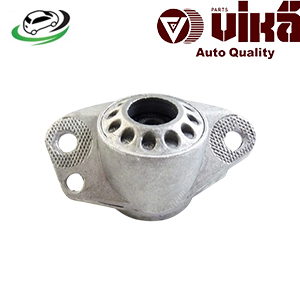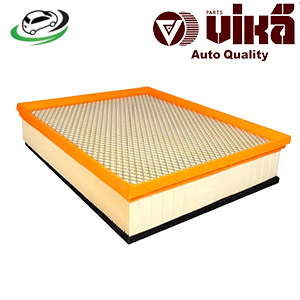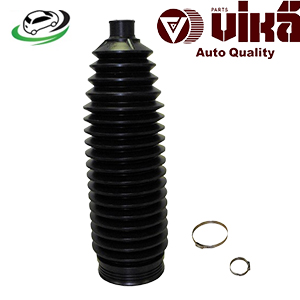-19%
Get Power Steering Rack Boot AUDI 8V S3/A3 8P/A3 8V/TT MKII/TTS / VW Golf R/Golf V/Golf VI/Golf VII/Golf VII R/Jetta V/Jetta VI 1J0513353B
The power steering rack boot, also known as the steering rack bellows or gaiter, is a vital component of a vehicle’s steering system. This seemingly simple part plays a crucial role in protecting the steering rack and maintaining the efficiency and longevity of the steering mechanism. Understanding the structure, function, types, benefits, common issues, and maintenance of power steering rack boots is essential for ensuring smooth and reliable steering performance.
Structure and Function of Power Steering Rack Boots
The power steering rack boot is designed to encase the inner tie rod ends and the steering rack, providing a protective barrier against contaminants and physical damage.
Components of a Steering Rack Boot
- Flexible Boot Material: Typically made from rubber or thermoplastic elastomer (TPE), the boot is flexible yet durable, allowing for movement while protecting the steering components.
- Clamps or Bands: Metal or plastic clamps secure the boot to the steering rack and tie rod ends, ensuring a tight seal.
- Bellows Design: The accordion-like structure of the boot allows it to expand and contract with the movement of the steering rack.
Function in the Steering System
The primary functions of the power steering rack boot include:
- Protection from Contaminants: The boot shields the steering rack and tie rod ends from dirt, debris, water, and other contaminants that can cause wear and damage.
- Lubrication Retention: By keeping contaminants out, the boot helps maintain the cleanliness of the lubricant around the steering rack, ensuring smooth operation.
- Physical Protection: The boot protects the steering components from physical damage caused by road debris and impacts.
- Sealing: It helps prevent the loss of lubricants and the ingress of moisture, which can lead to corrosion and reduced steering performance.
Types of Power Steering Rack Boots
Power steering rack boots come in various types, each designed to suit different vehicle models and performance requirements.
Rubber Boots
Rubber boots are common in many vehicles due to their flexibility and durability. They provide good resistance to abrasion and environmental elements, making them suitable for a wide range of driving conditions.
Thermoplastic Elastomer (TPE) Boots
TPE boots offer enhanced durability and resistance to extreme temperatures compared to traditional rubber boots. They are often used in modern vehicles where high performance and longevity are required.
Universal Boots
Universal boots are designed to fit a variety of vehicle models. They can be trimmed or adjusted to fit different steering rack configurations, making them a versatile option for repairs and replacements.
Benefits of Power Steering Rack Boots
Power steering rack boots offer numerous benefits that enhance the performance and longevity of the steering system.
Extended Steering Rack Life
By protecting the steering rack from contaminants and physical damage, the boot helps extend the life of the steering rack, reducing the need for frequent repairs or replacements.
Improved Steering Performance
A well-maintained steering rack boot ensures that the steering components operate smoothly, leading to improved steering response and precision.
Reduced Maintenance Costs
Protecting the steering rack from contaminants and damage reduces the likelihood of costly repairs and maintenance, saving money over the life of the vehicle.
Enhanced Safety
Reliable steering performance is crucial for vehicle safety. A functional steering rack boot helps maintain the integrity of the steering system, ensuring safe and predictable handling.
Common Issues and Maintenance of Power Steering Rack Boots
Despite their durability, power steering rack boots can experience wear and tear over time. Regular inspection and maintenance are crucial for ensuring their proper function.
Signs of a Faulty Steering Rack Boot
- Cracks or Splits: Visible cracks, splits, or tears in the boot material indicate that it may need replacement.
- Grease Leaks: Leakage of grease around the steering rack area can suggest a damaged boot, allowing contaminants to enter.
- Noise: Unusual noises, such as clicking or knocking during steering, can be a sign of debris or damage within the boot.
- Steering Difficulty: Increased steering effort or reduced responsiveness can indicate issues with the steering rack or boot.
Maintenance Tips
- Regular Inspection: Periodically inspect the steering rack boots for signs of wear, damage, or looseness.
- Clean Surrounding Areas: Keep the area around the steering rack clean to prevent contaminants from compromising the boot.
- Replace Damaged Boots Promptly: Timely replacement of damaged boots prevents further damage to the steering rack and other components.
- Use Quality Parts: Use high-quality replacement boots that match the specifications of the vehicle to ensure durability and proper fit.
Advances in Steering Rack Boot Technology
Modern advancements in steering rack boot technology have led to improved performance, durability, and ease of maintenance.
Advanced Materials
The use of advanced materials, such as high-strength rubber compounds and thermoplastic elastomers, enhances the durability and environmental resistance of steering rack boots. These materials are designed to withstand extreme temperatures, chemicals, and physical stresses.
Precision Manufacturing
Improved manufacturing techniques, such as precision molding and reinforced designs, ensure that steering rack boots meet high standards of quality and consistency. This precision results in better performance and reliability.
Innovative Designs
Innovative designs, such as reinforced bellows and integrated sealing systems, provide greater flexibility and protection for the steering components. These designs improve the overall effectiveness of the boots in protecting the steering system.
Follow us on Facebook for more parts.



